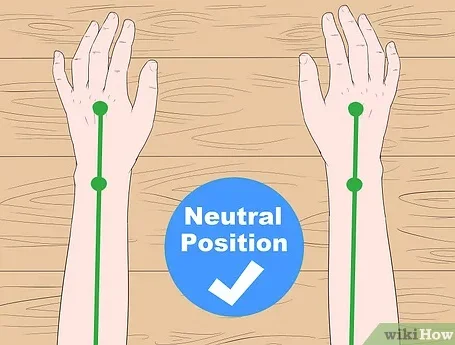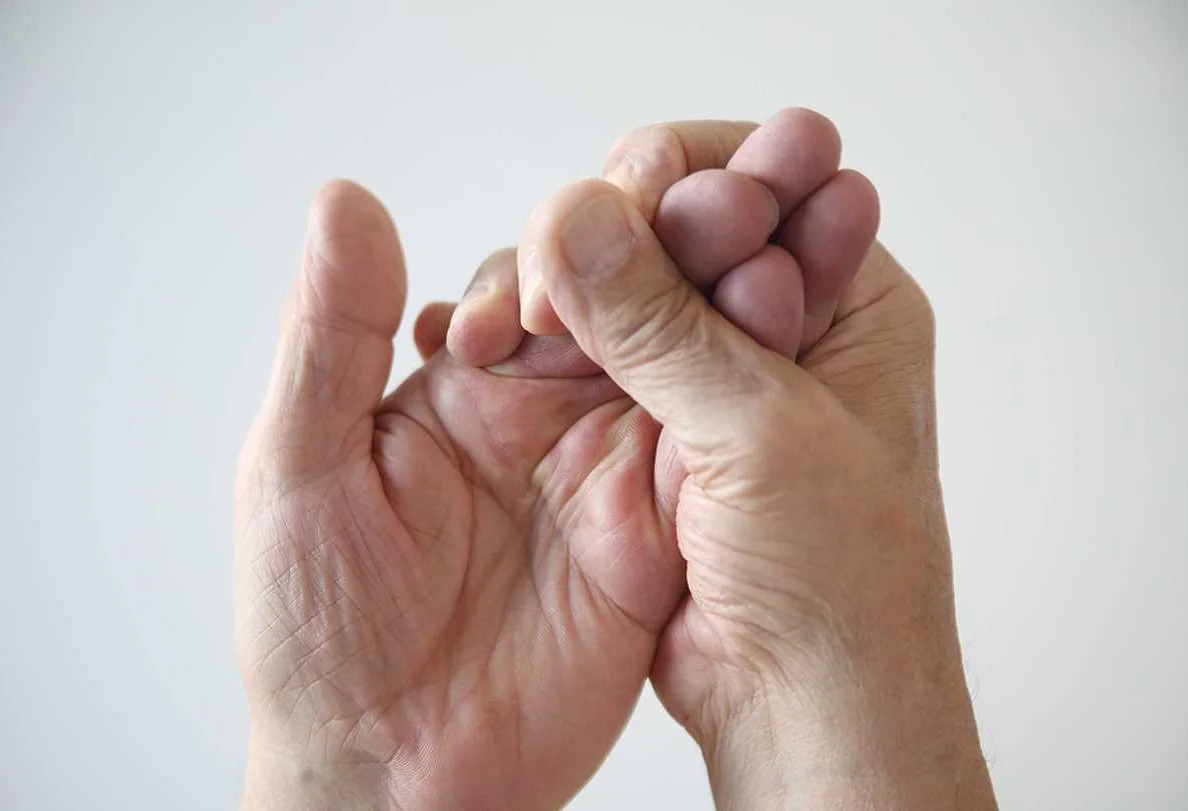Hands go numb: what to do, possible causes and treatment with folk remedies
Содержимое
Learn about the possible causes and treatments for numb hands and discover some effective folk remedies that can help alleviate the discomfort.
Have you ever experienced that unsettling sensation when your hands suddenly go numb? It can be a puzzling and alarming experience, leaving you wondering what could be causing it. In this article, we will explore the various causes of numb hands, as well as the available treatments and possible folk remedies.
Numbness in the hands can be caused by a variety of factors. One common cause is compression of the nerves in the wrist, known as carpal tunnel syndrome. This occurs when the median nerve, which runs from the forearm into the hand, becomes compressed or irritated. Other potential causes include nerve damage from injuries or medical conditions such as diabetes, vitamin deficiencies, and certain medications.
When it comes to treatment, it is important to address the underlying cause of the numbness. If carpal tunnel syndrome is to blame, wearing a splint or brace to keep the wrist straight and avoiding activities that aggravate the condition may provide relief. Physical therapy exercises and pain medications can also help manage the symptoms. In more severe cases, surgery may be necessary to relieve the compression on the nerve.
In addition to conventional treatments, some people turn to folk remedies to alleviate their symptoms. While these remedies have not been scientifically proven, they may offer temporary relief for some individuals. Examples of folk remedies for numb hands include applying a warm compress to the affected area, soaking the hands in warm water with Epsom salt, or massaging the hands with essential oils known for their soothing properties.
It is important to remember that numbness in the hands can be a sign of an underlying medical condition, so it is always advisable to consult with a healthcare professional for an accurate diagnosis and appropriate treatment. While folk remedies may provide temporary relief, they should not replace medical advice or treatment. Understanding the causes and available treatments for numb hands can help you navigate this unsettling sensation and find relief.
What Causes Numbness in Hands?

Numbness in the hands is a common symptom that can be caused by various underlying conditions. It occurs when there is a disruption in the normal functioning of the nerves in the hand. Here are some of the most common causes of numbness in hands:
| Carpal Tunnel Syndrome | This occurs when the median nerve, which runs through a narrow passageway in the wrist called the carpal tunnel, becomes compressed or irritated. This can happen due to repetitive hand and wrist movements, injury, or certain medical conditions. |
| Peripheral Neuropathy | This condition affects the peripheral nerves, which transmit signals between the central nervous system and the rest of the body. Damage to these nerves can cause numbness, tingling, and weakness in the hands. |
| Herniated Disc | A herniated disc in the neck or upper back can put pressure on the nerves that connect to the hands, causing numbness. |
| Raynaud’s Disease | This condition causes the blood vessels in the hands to narrow in response to cold temperatures or stress, resulting in numbness and color changes in the hands. |
| Diabetes | People with diabetes may experience numbness in their hands due to nerve damage caused by high blood sugar levels. |
In addition to these causes, numbness in hands can also be a symptom of other medical conditions such as multiple sclerosis, stroke, and vitamin deficiencies. If you frequently experience numbness in your hands, it is important to consult a healthcare professional for an accurate diagnosis and appropriate treatment.
Common Causes and Symptoms
There are several common causes and symptoms for hands going numb. These include:
1. Carpal Tunnel Syndrome (CTS)
Carpal tunnel syndrome is a condition that occurs when the median nerve, which runs from the forearm to the hand, becomes compressed or squeezed at the wrist. This can cause numbness, tingling, and weakness in the hand, as well as pain that can radiate up the arm.
2. Peripheral Neuropathy
Peripheral neuropathy is a condition that affects the nerves outside of the brain and spinal cord. It can be caused by a variety of factors, such as diabetes, infections, and traumatic injuries. Numbness and tingling in the hands are common symptoms of peripheral neuropathy.
3. Raynaud’s Disease
Raynaud’s disease is a condition that affects the blood vessels in the fingers and toes. It can cause the blood vessels to narrow in response to cold temperatures or stress, leading to numbness and color changes in the hands.
4. Thoracic Outlet Syndrome
Thoracic outlet syndrome occurs when the blood vessels and nerves in the space between the collarbone and first rib become compressed. This compression can cause numbness and tingling in the hands, as well as pain in the neck, shoulder, and arm.
5. Poor Circulation
Poor circulation can be caused by a variety of factors, including smoking, diabetes, and heart disease. It can lead to numbness and tingling in the hands, as well as coldness, paleness, and swelling.
If you are experiencing numbness or any other symptoms in your hands, it is important to consult with a healthcare professional for an accurate diagnosis and appropriate treatment.
Medical Conditions and Numbness

Numbness in the hands can be caused by various medical conditions and it is important to identify the underlying cause in order to determine the appropriate treatment. Here are some common medical conditions that can cause numbness in the hands:
Carpal tunnel syndrome: This condition occurs when the median nerve, which runs from the forearm to the hand, is compressed or squeezed at the wrist. Common symptoms include numbness, tingling, and weakness in the hand.
Peripheral neuropathy: It is a condition that affects the nerves outside the brain and spinal cord. Numbness, tingling, and weakness in the hands can be symptoms of peripheral neuropathy. This condition can be caused by diabetes, autoimmune diseases, infections, and certain medications.
Raynaud’s disease: This condition affects the blood vessels in the fingers and toes, leading to episodes of reduced blood flow. Numbness, tingling, and color changes in the hands can be symptoms of Raynaud’s disease. Cold temperatures and stress can trigger these episodes.
Multiple sclerosis (MS): MS is a chronic autoimmune disease that affects the central nervous system. Numbness, tingling, and weakness in the hands can be early symptoms of MS. Other symptoms may include fatigue, blurred vision, and muscle stiffness.
Arthritis: Various forms of arthritis, such as rheumatoid arthritis and osteoarthritis, can cause inflammation in the joints of the hands. This inflammation can compress the nerves and lead to numbness or tingling sensations.
Stroke: A stroke occurs when the blood supply to the brain is disrupted, leading to cell death. Numbness or weakness on one side of the body, including the hands, can be symptoms of a stroke. Other symptoms may include difficulty speaking, dizziness, and severe headache.
If you are experiencing numbness in your hands, it is important to consult with a healthcare professional for an accurate diagnosis and appropriate treatment. They may recommend physical therapy, medication, lifestyle changes, or other interventions based on the underlying cause of your symptoms.
Note: This article is for informational purposes only and should not be considered as medical advice. Consult with a healthcare professional for personalized recommendations.
Diagnosis and Treatment Options

When experiencing numbness in your hands, it is important to seek medical attention to determine the underlying cause. A healthcare professional will conduct a thorough examination and may order diagnostic tests to identify the problem accurately.
The diagnosis of numbness in the hands typically involves:
- Medical history: The doctor will ask about your symptoms, medical history, and any previous injuries or conditions that may contribute to the problem.
- Physical examination: The healthcare provider will examine your hands, test your reflexes, and assess your overall strength and coordination.
- Diagnostic tests: Depending on the suspected cause of the numbness, the doctor may order additional tests such as blood tests, nerve conduction studies, electromyography, or imaging tests like X-rays or magnetic resonance imaging (MRI).
Once the cause of numbness is determined, the healthcare provider will recommend appropriate treatment options. The treatment may vary depending on the underlying condition and severity of symptoms.
Treatment options for numbness in hands may include:
- Medication: The doctor may prescribe pain relievers, anti-inflammatory drugs, or other medications to manage the underlying condition causing the numbness.
- Physical therapy: A physical therapist can teach exercises to help improve strength, flexibility, and overall function in the hands.
- Occupational therapy: An occupational therapist can assist in modifying daily activities to reduce strain on the hands and prevent further numbness.
- Braces or splints: Wearing braces or splints can provide support and help reduce pressure on the hands, improving symptoms.
- Surgery: In some cases, surgical intervention may be necessary to relieve compression of nerves causing the numbness.
In addition to medical treatments, there are also some self-care measures and home remedies that may help alleviate symptoms of numbness in the hands. However, it is essential to consult with a healthcare professional before trying any alternative remedies.